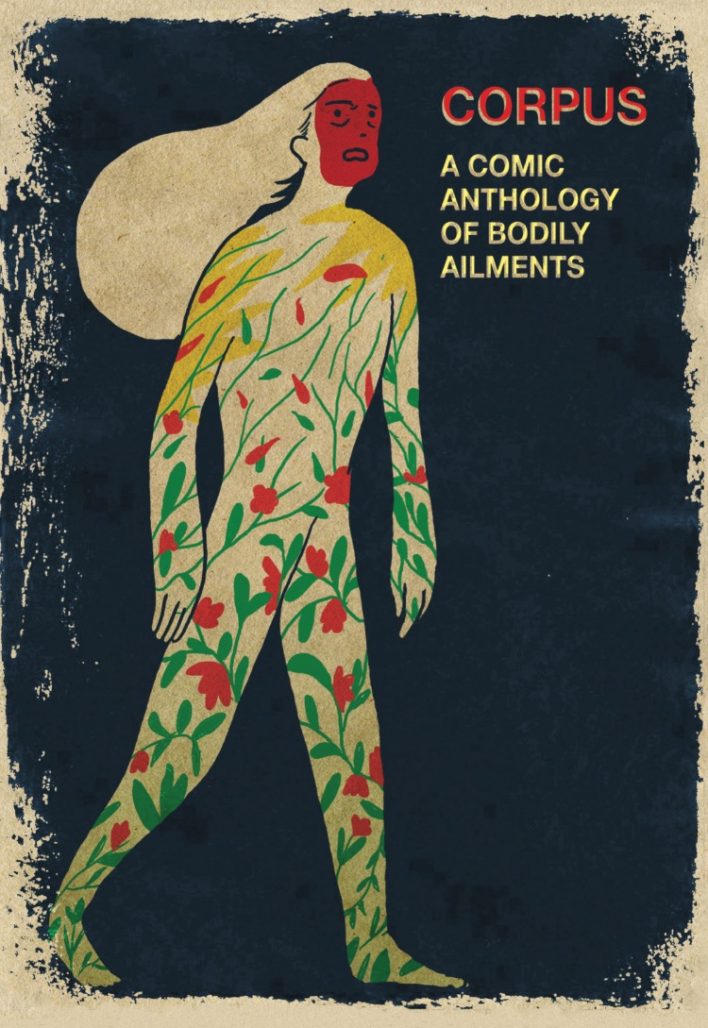
The fact of the matter is, we all get sick at some point. Some of us live with those illnesses every day of their lives. And the best we can do is to figure out how to live with those diseases and disabilities. To find hope and faith in the face of those chronic and temporary pains. CORPUS: A Comic Anthology of Bodily Ailments, is a Kickstarter project that hopes to teach us how to do just that.
Curated by Nadia Shammas, she hopes that CORPUS will be an anthology that “re-humanize[s] the voices of the sick, not only by giving them a platform to share their stories, but by also acknowledging and exploring the multitude of ways illness can enter our lives.”
Featuring a list of fantastic creators such as Christopher Sebela, Ryan Cady, Philip Sevy, Haley Boros, Vita Ayala, Caspar Wiingaard, and more, CORPUS is the Kickstarter project you need to back right now.
Recently, I sat down with Nadia to talk about her personal experiences inspired CORPUS and what she hopes the project will bring to the public conversation surrounding the way we treat the sick in America.
Alex Lu: Nadia, how did your experience living with Type I diabetes lead to the genesis of CORPUS?
Nadia Shammas: The thing about having diabetes is that it’s really not what people expect. If diabetes is every brought up in popular media, it’s usually married to some kind of fat joke, something that implies you’re guilty of having the disease because you ate too much sugar. There’s also no distinction made between Type 1 or Type 2, not that anyone deserves or earns a disease. Diabetics don’t just sit around eating sugar until their toes fall off like some kind of punch line. Diabetes is nothing like that.
Type 1 hits so many children and young people. I was 6 when I was diagnosed, and when I tell people, they say, “oh you’re so young, did you eat unhealthy?” The lack of realistic representation is very damaging, and it can negatively affect diabetics by endowing them with a heavy sense of guilt. Diabetes as a disease is already a tightrope walk that never ends. You have to juggle a million things in your mind at once all day, every day, and any slip will through you off balance. Sometimes it doesn’t even have to be a slip, it’ll just happen. The culture around diabetes representation makes you feel even worse, and it creates a huge sense of what I call “diabetic burnout” where you get so tired you just give up, and the damage is irreparable.
Keeping all that in mind, I was spending some time ruminating about the lack of representation, and then I thought about how difficult it must be for other people with invisible or visible disabilities. I started to think about the only time I ever found a book with a diabetic character, a pre-teen novel called Sweetblood, and how much it meant to me. From that point I decided to go with a medium I loved, comics, and to try to create a space for people to share the stories they wish they had when they were younger.
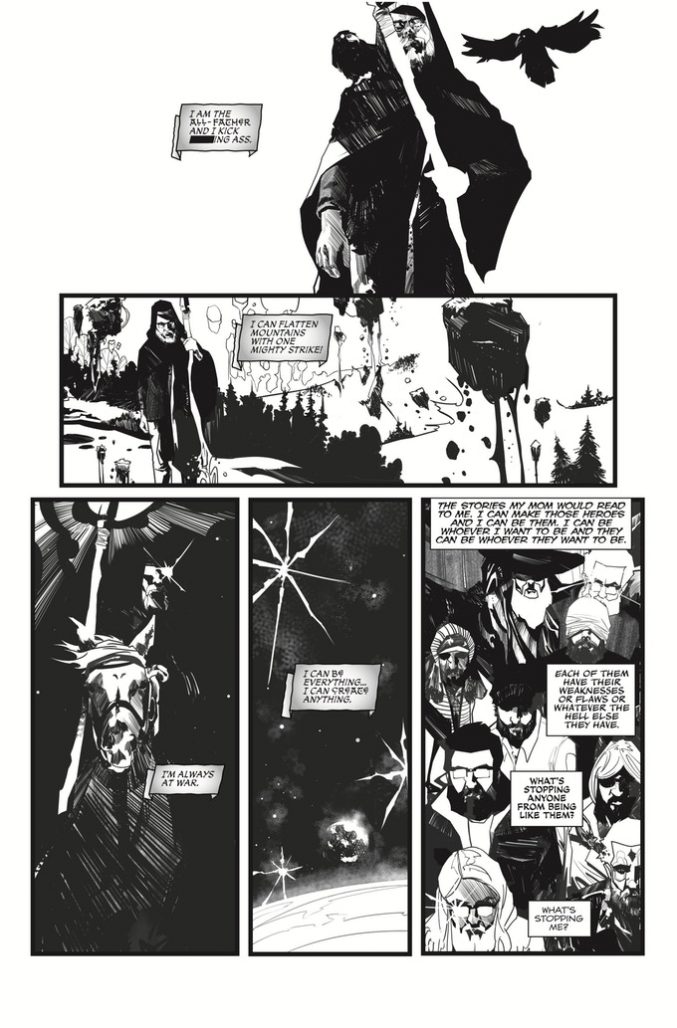
Lu: As CORPUS is your first anthology, how have you found the production experience so far? What have been the most exciting parts for you and conversely, the most challenging?
Shammas: The production experience has been exhilarating and exhausting all at once. It’s been amazing to receive the support of strangers, friends, and industry heroes of mine who I dreamed of meeting who gave me a moment or a word of kindness. Being noticed by industry legends like Shelley Bond, Gail Simone, and Colleen Doran was mind-blowing. I think my absolute favorite thing has been meeting and working with my amazing roster. I have made so many friendships with people I’ve admired from a distance, and to work with them and discover that they are more kind, supportive, and hardworking than I could have imagined has been delightful. I couldn’t have done this without their efforts and their taking a chance on me.
I would have to say that the admin work has been both exciting and challenging. It can often feel like you’re screaming into a void when you’re sending countless emails and price shopping printing services. It’s amazing to see something you imagined come to life but in the day to day it can be grinding too. By far the most challenging aspect of this book was deciding the final roster. I opened submissions for 6 weeks, and in those 6 weeks I received over 200 submissions. So many of them were talented people with amazing perspectives, but it was literally impossible to put them all in a book. I honestly extended the page count I originally planned for by 60 pages because I couldn’t bear to trim down anymore. I didn’t want anyone to feel as though they weren’t chosen because their experience wasn’t valid. It really was just a space issue. That experience definitely made me realize that people are looking for a place to have their stories told. I hope CORPUS can be that place.
Lu: You have a number of fantastic creators on deck for the CORPUS anthology. Could you tell us about a few people whom you’re particularly excited to see included and why their pitches spoke to you?
Shammas: It is actually impossible for me to single out any particular person. Everyone who came to the project either came through submissions or by me approaching them asking to submit something to be considered. I am very grateful for those who agreed, especially the very busy folks such as Erica Schultz, Brian Level, Vita Ayala, Eliot Rahal, Chris Sebela, Tini Howard, Alex Paknadel, Casper Wjingaard, and so on. They really carved the time out of their schedules to be part of this, and it was so amazing of them to believe in CORPUS. Every pitch was so different, but captured a different aspect of illness. I wanted CORPUS to be as varied as the different ways illness can enter and change our lives, so each person is bringing something totally unique, but something that without it, CORPUS would be incomplete.
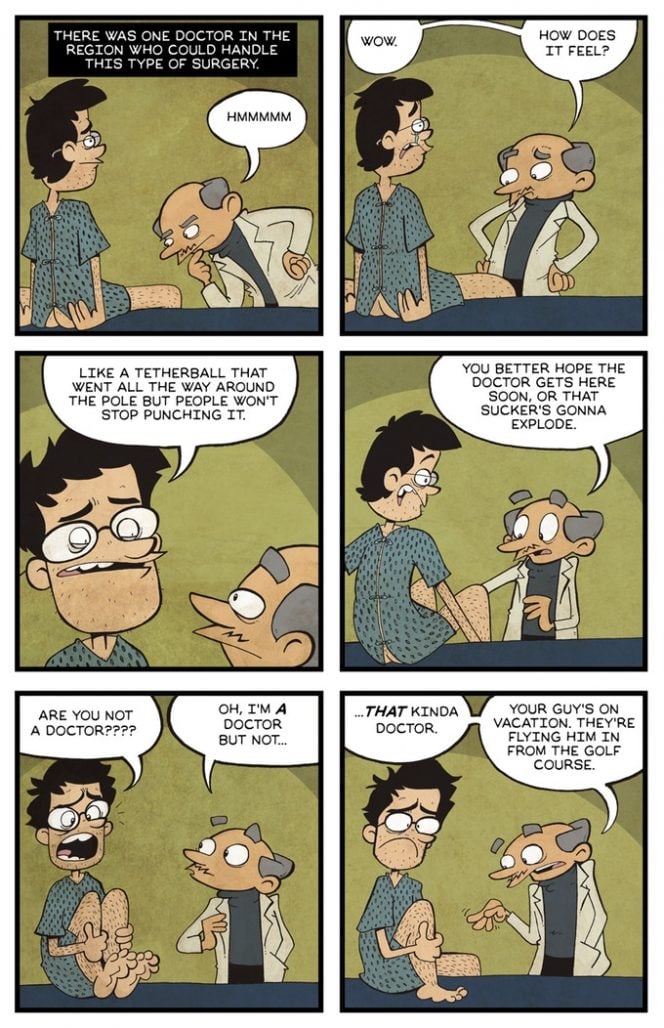
Lu: Beyond the obvious themes of illness and the body, is there anything that you feel ties the stories in CORPUS together thematically or stylistically?
Shammas: CORPUS has an incredibly varied lineup of stories for a purpose. We’ve got all kinds of artistic styles, tones, and focuses. Some stories are funny, some are straightforward, and some are surrealist or horror. CORPUS has got something for everyone. The thing about illness is that while it’s the most universal thing in the world, its experienced by everyone really differently. No two bodies are the same, and the same disease won’t be experienced by two people the same way. That’s why I made sure to really embrace the different ways a story can be told or an experience can be captured. CORPUS is Latin for the body, but it can also refer to a “body of work.” I really embraced the idea of the body, made up of so many different pieces that make up a coherent whole.
Lu: In your press release, you seek to contextualize Corpus within the society that we live in, where the very foundation of our healthcare system seems to be at risk. I was wondering if you could expound upon that. What do you hope readers will take away from the anthology?
Shammas: I strongly believe in the ability of fiction to create empathy and to change minds and hearts. I’ve read some compelling essays in the past that link the rise of the novel to the rise of the popularization of the concept of “human rights.” In today’s administration, healthcare is being discussed and treated as though there’s a small group of sub-human money sucking gremlins looking to take away the hard earned wages of the American taxpayer. Nothing can be further from the truth. People don’t realize how close they are in proximity to illness; not only through loved ones or friends who become ill but also that you can become sick and lose everything at any moment. Not only “can” you, but you will. Literally everyone will become sick. I want people to come away realizing that healthcare should be accessible. I want people to recognize that people with chronic illnesses are just normal, that we aren’t some lazy scheming faceless horde. The funny thing about health is that you don’t think about it until its gone.
I want people to realize that there’s nothing to be ashamed of. Being sick, even getting a cold, isn’t a sign of weakness. You can talk about it, talk about what you need, talk about how you feel. There’s so much silence around illnesses because in our culture we see illness as something shameful. I want CORPUS to break that and turn it on its head. I want someone who has suffered through something or watched a loved one suffer through something to find something in CORPUS that makes them laugh, makes them cry, makes them feel seen. I want CORPUS to be the beginning of something special. With your help, it can be.
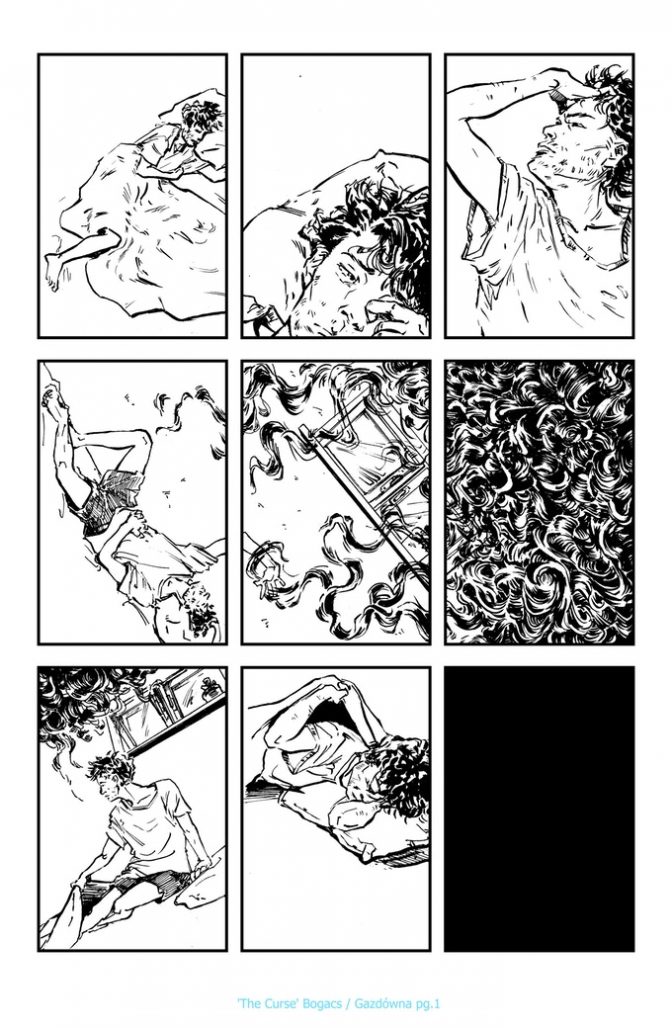
CORPUS is currently up for funding now.


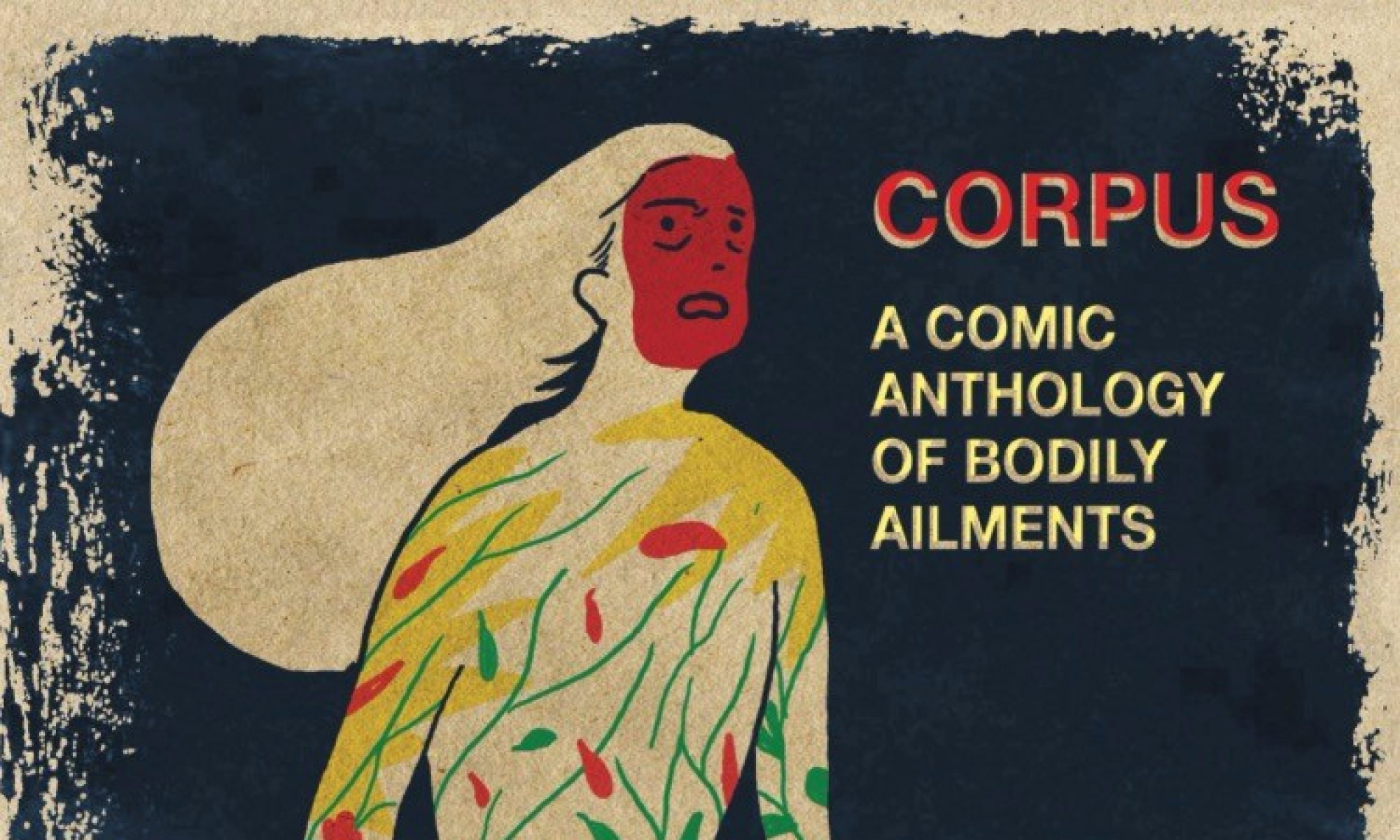






Comments are closed.